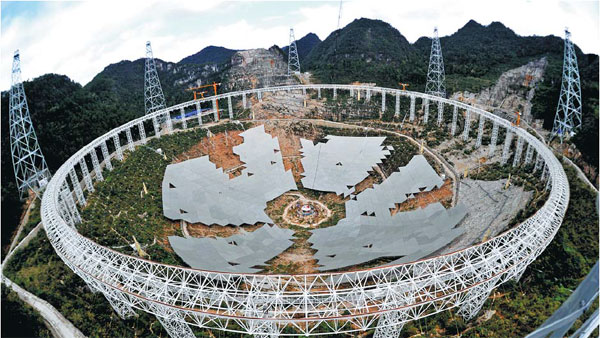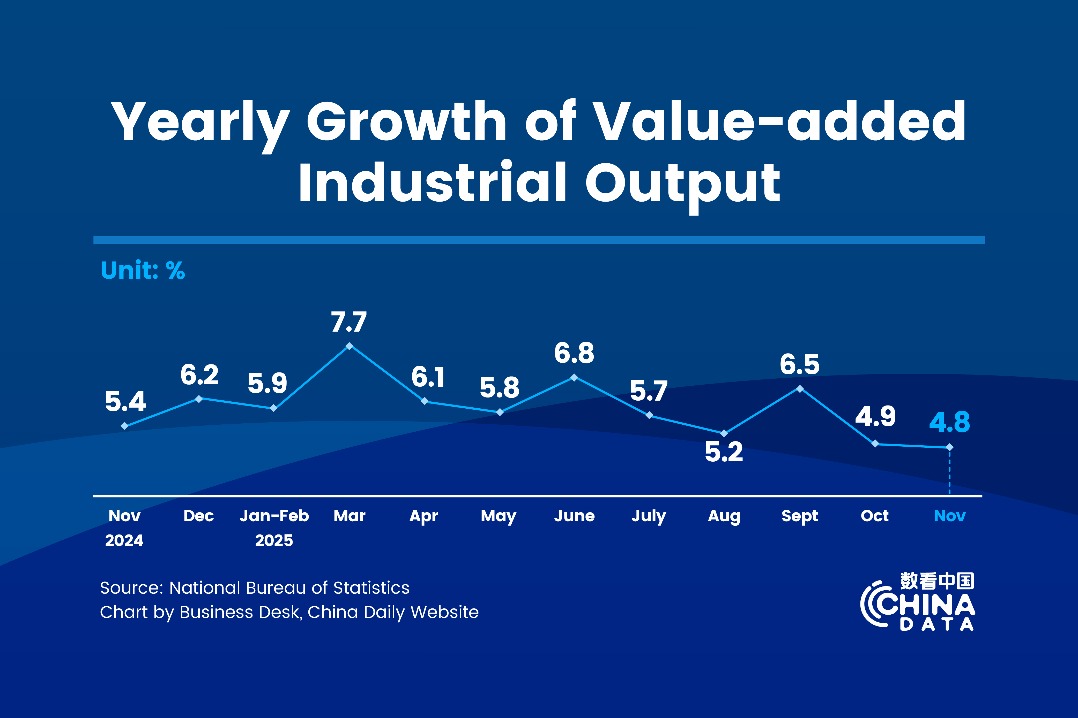Rebranding China's old industrial base -- the Liaoning way


SHENYANG - In a humble corner of a factory in the old industrial base of China, stood a display board introducing the feedback source supporting system it built for FAST, the largest and most sensitive radio telescope on earth.
The flexible six-cable parallel link system, which took four years to be designed, manufactured and installed by Dalian Huarui Heavy Industry Group based in Northeast China's Liaoning province, is one of the three major technological breakthroughs of the Five-hundred-meter Aperture Spherical Radio Telescope (FAST).
"The 30-ton feeds cabin is suspended with six cables from six concrete towers on the surrounding hills, realizing long-span instantaneous and accurate positioning of the cabin, revolutionizing the previous rigid support model between feed source and reflector in radio telescopes," said Xu Hongwei, general manager assistant at Huarui, and a designer of the system.
As a leader in the field of key technical equipment research and heavy machinery manufacturing in China, Huarui has entered 91 countries and regions with its products serving sectors including metallurgy, mining, port, shipbuilding, energy and aerospace.
Improved business environment
Innovation and restructuring have become buzzwords for companies in northeast China -- made up of Liaoning, Jilin and Heilongjiang provinces.
As one of the first regions in China to become industrialized on the back of heavy industry, it was also known for its daunting business environment, largely because of high costs and low efficiency due to government bureaucracy under the long-term influence of the planned economy.
However, flying in the face of the old saying "investment does not go beyond Shanhaiguan Pass (a traditional geographical division separating the region from the rest of China)," investors are swarming into Liaoning, as local governments are reforming to streamline administrations and improve services.
In 2015, the provincial government set up a special bureau for improving the business environment, providing convenience for business entities operating in Liaoning.
The bureau opened a government affairs service hall in Shenyang, the provincial capital, where almost all government departments are present to offer face-to-face advice and accept documents.
The hall used to be packed with up to 800 applicants each day, according to Wu Juan, deputy director of the bureau. "Since 2017, 97 percent of the applications can be reviewed and approved online."
Min Zheng, from a local transportation company, made an inquiry at the desk of the transport department, as one of his company's trucks was scheduled to carry goods to Xi'an.
"It took about half a month to apply for the license to go through, but now I only need to wait for two and a half days," Min told Xinhua.
The ever-improving business environment has also helped Liaoning to woo domestic and international investors.
"Shenyang has proven to be the most solid supporter and growth partner, creating infrastructure and an environment where our business and employees can thrive," said Johann Wieland, president and CEO of BMW Brilliance Automotive (BBA), German carmaker BMW's joint venture.
Besides BBA, Saudi Aramco has invested $10 billion and established a joint venture petrochemical company in Liaoning's coastal city of Panjin.
In 2018, a total of 259 investment projects landed in Liaoning with a total amount of 858.8 billion yuan ($124.6 billion).
Going global
As more investors swarm in, local enterprises have also been stepping abroad.
Shenyang Yuanda Enterprise Group has established curtain wall technology research and development centers in Britain, Switzerland, Japan, Australia and Italy, completing landmark projects such as the Russian Federation Building, the COCOON Building in Japan, and the ADIC Building in the UAE.
Shenyang-based SIASUN, a leading enterprise in China's robotic industry, has also planned to expand its R&D and manufacturing territory to other countries including Singapore, in addition to more than 30 export destinations across the globe.
As a hub for cooperation among northeast Asian countries, Liaoning with its geographical advantage is rising as an important post of trade and transportation on the Eurasian continent.
"Liaoning will enhance the ongoing trade contacts with Russia, Japan and Republic of Korea, and also advance our cooperation with Central and Eastern European countries," said He Rui, deputy director of Liaoning's commerce department.
Goods shipped to Dalian port can exit China on freight trains via Manzhouli, which borders Russia, before they are unloaded to meet consumers in Europe.
"Products from Japan, the ROK and Chinese coastal cities can thus be transported more efficiently to the Russian and European market by way of Dalian," said Xia Ting, with Liaoning Port Group.
"A new route linking Dalian and Slovakia has been planned to relieve the unloading pressure in Poland, a major destination of China-Europe freight trains," said Sun Shimeng, with CRIntermodal Dalian Terminal.
Liaoning has seen its GDP rise about 5.7 percent in 2018 and about 5.8 percent in the first half of 2019.
"The figures demonstrate that Liaoning's economy had bottomed out and followed a stable and healthy development path," said Tang Yifei, deputy head of the provincial development and reform commission.




































